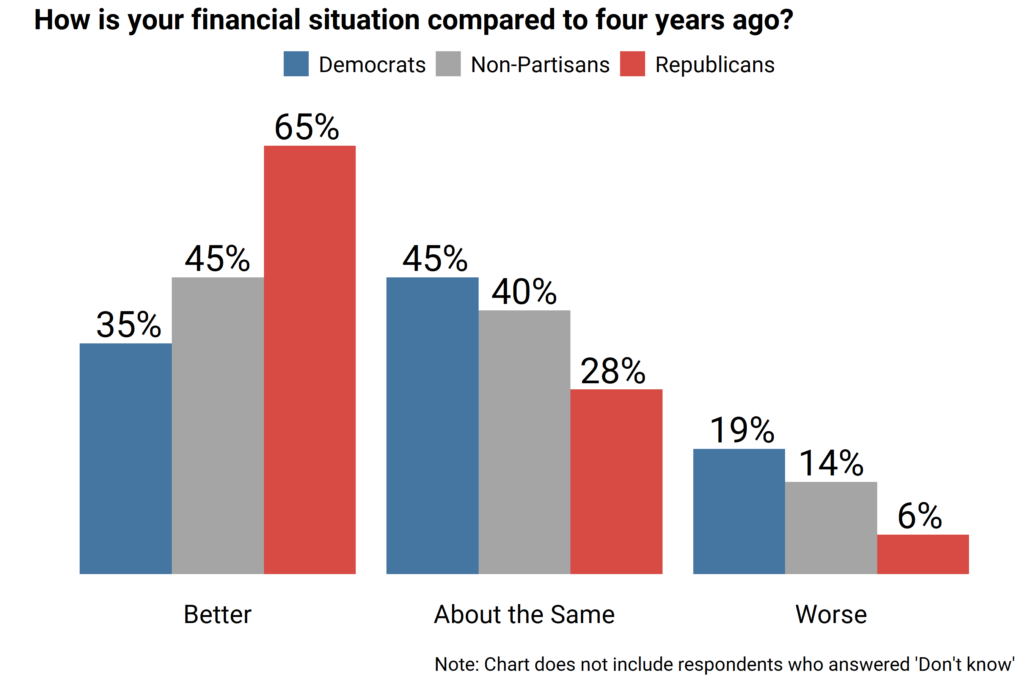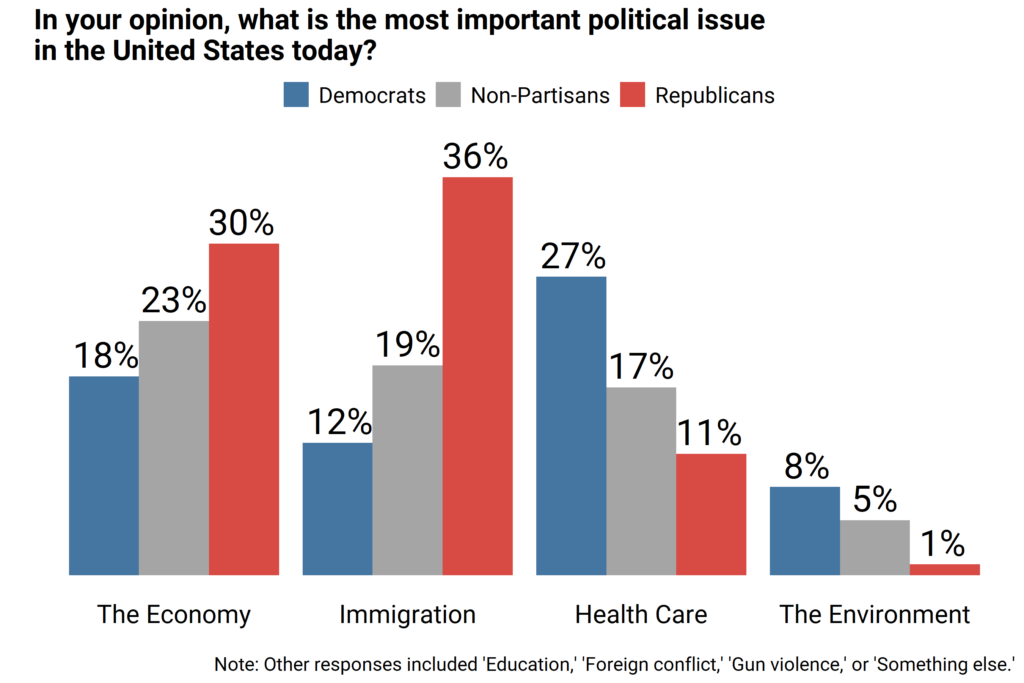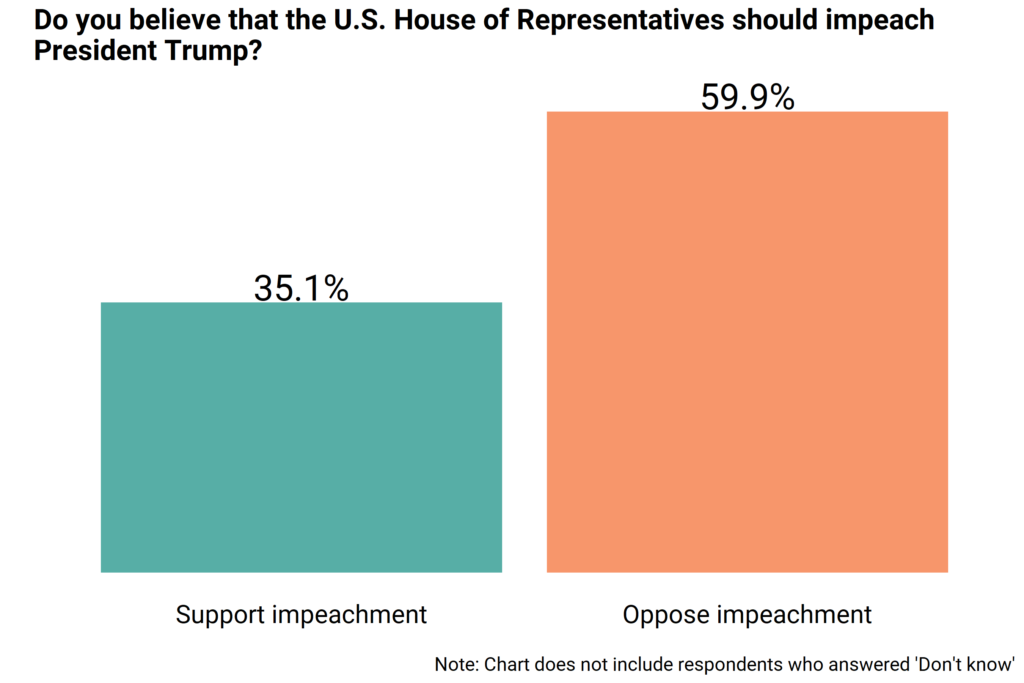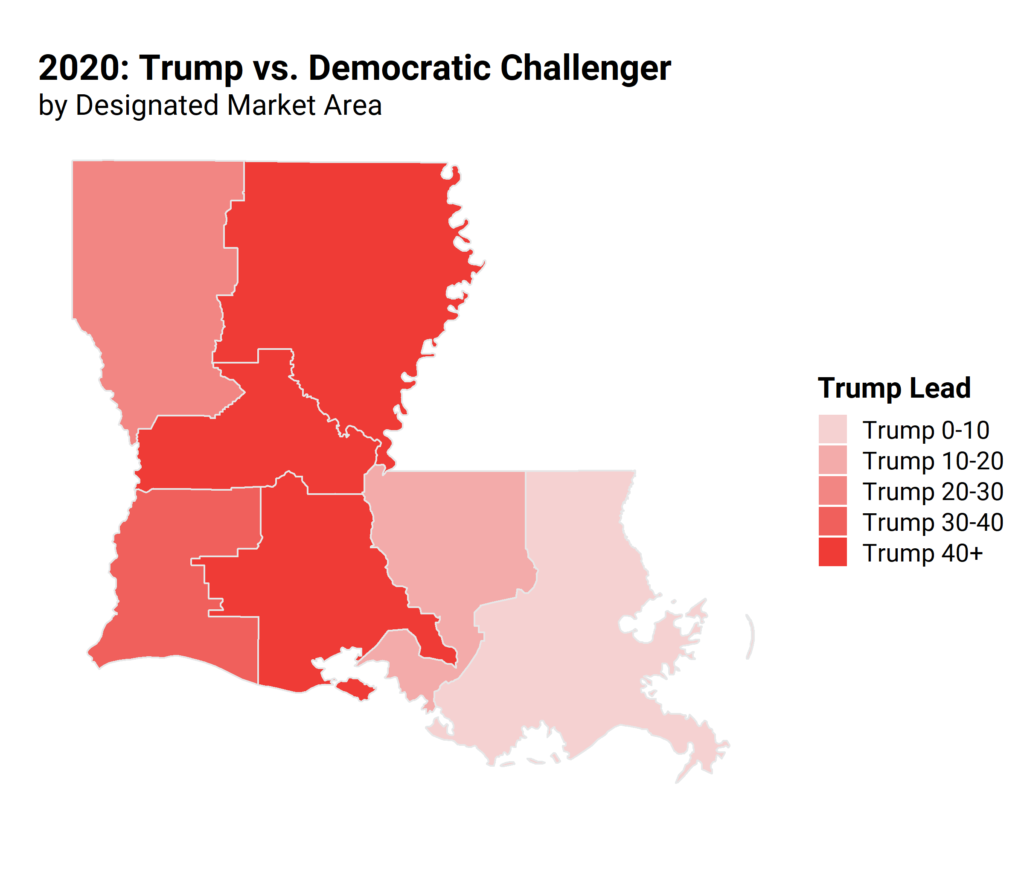Over the past week, DDHQ has paired up with 0ptimus to survey voters in the Louisiana runoff election. After polls close, we’ll be pouring over election results to see if incumbent Democrat John Bel Edwards can eek past his Republican challenger Eddie Rispone in an election that recent polling indicates will be close. In the meantime, we can take a closer look at the Louisiana electorate to understand what political issues they are prioritizing in the state as well as uncover what these voters think of national politics.
Polarized Perspectives

Political polarization is alive and well in the Bayou State with Democrats and Republicans holding many opposing views, especially on national issues. For example, four in five registered Republicans in the state report the United States is heading in the “right direction” while only 25% of Democrats agree. Similarly, as the graph above shows, when asked about their current financial situation compared to four years ago, a majority of Republicans reported either “Much Better” or “Somewhat Better” while a plurality of Democrats reported their situation was “about the same.”

In the state that President Trump won by nearly twenty percentage points, our survey discovered notable ideological asymmetry across partisans. Among Republicans, a plurality described their political views as “Very Conservative” (49%) while, among Democrats, a plurality described their views as “Moderate” (34%). When asked about their political priorities, Louisiana voters differed greatly by party. While Republicans in the state prioritized either immigration or the economy as their most important political issue, Democrats prioritized health care.
A Election to Lose for Republicans?
Trump’s approval rating in Louisiana has recently been reported at +12. As a possible consequence, Eddie Rispone has done as much as he can to tie himself to the President. (For context: in a July advertisement, Rispone spoke to the camera while sitting on a pickup truck with Trump bumper sticker and Yeti cooler in full view above a chyron reading: “Eddie Rispone: Trump Supporter.”) And it appears that the feeling has been mutual. In the past two weeks, Trump has visited the state twice to campaign for Rispone.
Our survey indicates Rispone’s campaign made a smart move tying their candidate to Trump. Our poll found Trump’s net favorability among likely gubernatorial voters in the state at over 15 percentage points. We also found that nearly 60% of voters think the House of Representatives should not impeach the President (which is nearly fifteen points above the national average).

More good news for the President can be found from our match-up question that asked voters to choose between Trump and a generic Democrat for the 2020 presidential campaign. On this question, we found the President’s lead at just under 20 percentage points – nearly the same lead he had over Hillary Clinton in the 2016 election in the state. Below, we broke this question out by designated market area (i.e. media markets) and found Trump holding a lead across all markets. Notably, his lead in the northern part of the state was over 40 points. Of course, these figures will likely differ once the Democrats actually nominate a candidate and we get closer to election day but, nevertheless, this provides a decent snapshot into how today’s electorate thinks about President Trump.

While these findings are good news for President Trump in the state, they might not be great news for all candidates with an R trailing their name. We asked voters in this election whether their vote in the gubernatorial runoff was going to be cast to express support for Trump, opposition for Trump, or if Trump was not going to be a factor and we can report some bad news for Eddie Rispone: Just under one-in-two voters reported that Trump would not be a factor in their vote today. Among non-partisans, just under 60% report Trump would not be a factor. Despite the great extent that cable punditry will tie tonight’s result to the President, Louisianans have made it clear that they like the President. Tonight’s election, however, is about Louisiana.
Survey Methodology: From November 12th to 15th, DDHQ and 0ptimus surveyed 1,155 gubernatorial runoff likely voters in Louisiana using registration-based sampling (RB). The sampling frame included all voters in Louisiana with sampling conducted via probability proportional to size (PPS) using 2019 gubernatorial turnout scores. Turnout scores were estimated using voters’ vote histories, demographic information, ABEV propensity, and other relevant features by 0ptimus. The sample was contacted via live calls to landline (28.5% of sample) and cellphones (14.3%), interactive voice response (22.2%), and peer-to-peer text to web (35.2%). The sample was weighted by age, race, party registration, gender, and education. The margins of error vary across question due to item non-response and response variance but is generally +/- 3.4% for the full sample. Topline reports, cross-tabs, and further methodological details can be found on the 0ptimus GitHub page.